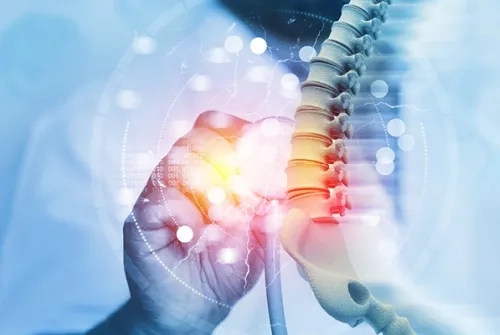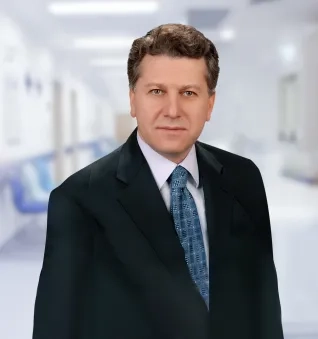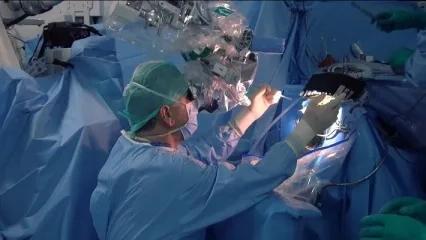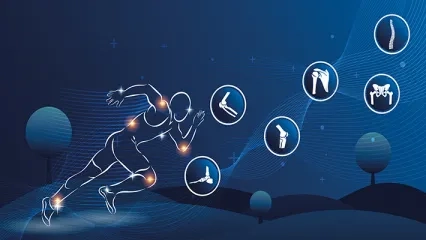Alo Yeditepe
Alo Yeditepe
Spinal Fractures
Why Do Spinal Fractures Occur?
Traumas (falls, traffic accidents, etc.) can be listed among the causes of the spinal fractures; on the other hand, infections or the spread of tumors or cancers that occur in the bone tissue can also cause spinal fractures. If the bone quality is poor, postmenopausal women may also have fractures in the vertebrae.
Are Spinal Fractures Dangerous?
Spinal fractures are dangerous if they are on the spinal cord and compress the nerves, as they can cause spinal cord or nerve injury. It prevents standing. In some fractures, especially those in the cervical region, respiratory arrest may cause death. In the back or lumbar region, on the other hand, paralysis may occur in the legs in the most severe fractures.
Why are Spinal Fractures More Common in the Elderly and Those with Osteoporosis?
The bone quality and strength weaken with aging. If osteoporosis, especially common in women after menopause, is not treated, fractures may occur in the spine. These fractures cause deformations in the spine, hunchback, and losses of strength that may result in severe gait disturbances and paralysis in advanced cases.
What are the Complaints in Spinal Fracture Cases?
Complaints vary depending on the location of the fracture, but the most common complaint is severe pain localized to the fracture region. The pain is usually in the middle and can spread to the legs.
In severe fractures, the patient cannot walk, and even severe loss of strength may occur in the legs or arms. In addition, urinary and fecal incontinence may occur.
How are Spinal Fractures Treated?
Fractures that do not cause complaints and are not dangerous can be treated without surgery, but surgery is usually more prominent in treating spinal fractures than other treatments. Surgical treatments are performed to strengthen the spine and increase its mechanical strength. Osteoporotic fractures can be treated with percutaneous methods (with the help of needles and instruments inserted through a small incision), while for larger and more severe fractures, metal implantation and spinal fusion surgeries are usually performed.
This content was prepared by Yeditepe University Hospitals Medical Editorial Board.
”
See Also
- What is a Brain Tumor? Symptoms, Causes, and Treatment
- What are Hip Joint Diseases? Causes and Treatment
- Causes and Treatment Methods of Cervical Herniated Disc
- Robotic Hip Replacement Surgery
- Things to Consider When Walking in Snowy Weather
- What is Hallux Rigidus (Stiff Big Toe/Toe Arthritis)? Symptoms and Treatment
- What is Hallux Valgus (Bunion)? How is it Treated?
- What is a Bone Tumor? Bone Tumor Symptoms
- What is Crooked Leg? Can Crooked Legs Be Treated?
- What Causes Shoulder Dislocation? Shoulder Dislocation Treatment
- What is Parkinson's Surgery?
- Knee Pain
- Wrist Pain Causes and Treatment
- Brain / Spinal Cord Spine and Nerve Surgery (Neurosurgery)
- Lumbar Spondylolisthesis (Lumbar Slipped Vertebrae)
- Ergonomics in Automobiles Prevents Accidents
- Don't Underestimate Bone Pain That Doesn't Make You Sleep and Doesn't Relieve With Medication
- Walking and Returning to Social Life After Knee Replacement Surgery
- What Are the Advantages of Robotic Knee Replacement Surgery?
- Robotic Knee Prosthesis Surgery
- Why Does Ankle Pain Occur? What Is the Treatment?
- What Causes Hip Pain? How Does Hip Pain Go Away?
- The Usage Area of Robotic Surgery Expands in Orthopedic Surgeries
- Higher Risk of Anterior Cruciate Ligament and Ankle Injury in Female Athletes
- Lumbar Spinal Stenosis
- Narrow Cervical Canal and Myelopathy
- Big Toes Can Be A Big Problem!
- Hip Osteoarthritis and Hip Prosthesis
- Not Only Athletes Suffer from Meniscus Tears!
- Mistakes While Swimming Can Cause Shoulder Pain
- What is a Stress Fracture? How to Treat Stress Fracture?
- Myths About Fractures
- The First Onset of Pain in Cartilage Damage in the Knee Should Not Be Overlooked
- Sports Injuries
- He Walked Out Of The Hospital Where He Entered On Crutches
- 8 Common Misconceptions About Sports Injuries
- Use of Vitamin D in Pregnant Women
- Knee Arthritis
- Biopsy for Bone and Soft Tissue Tumors
- Knee Pain
- Brain Battery Connecting Parkinson Patients to Life
- Treatment Success in Brain Tumors Also Depends on the Family
- Not All Hand Tremors Are Caused by the Parkinson's Disease
- Do not Fill Your Brain With Junk Food If You Want A Good Memory
- When Does the Spine Require Surgical Treatment?
- Osteoporotic Spinal Fractures Can Cause Bigger Problems If Not Treated Early
- Patient Selection is Important in Parkinson's Surgery
- Canal Narrowing in the Spinal Cord
- Beware If Your Walking Distance Is Decreasing!
- Treatment of Knee Arthrosis Varies According to the Person
- A Lack of Attention to Sports Injuries in Children May Affect Their Development
Alo Yeditepe













